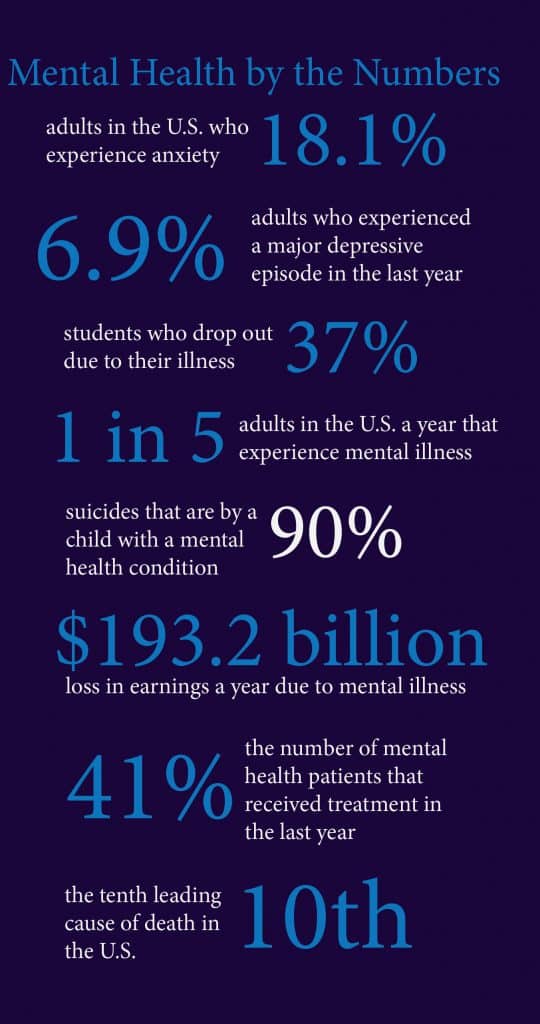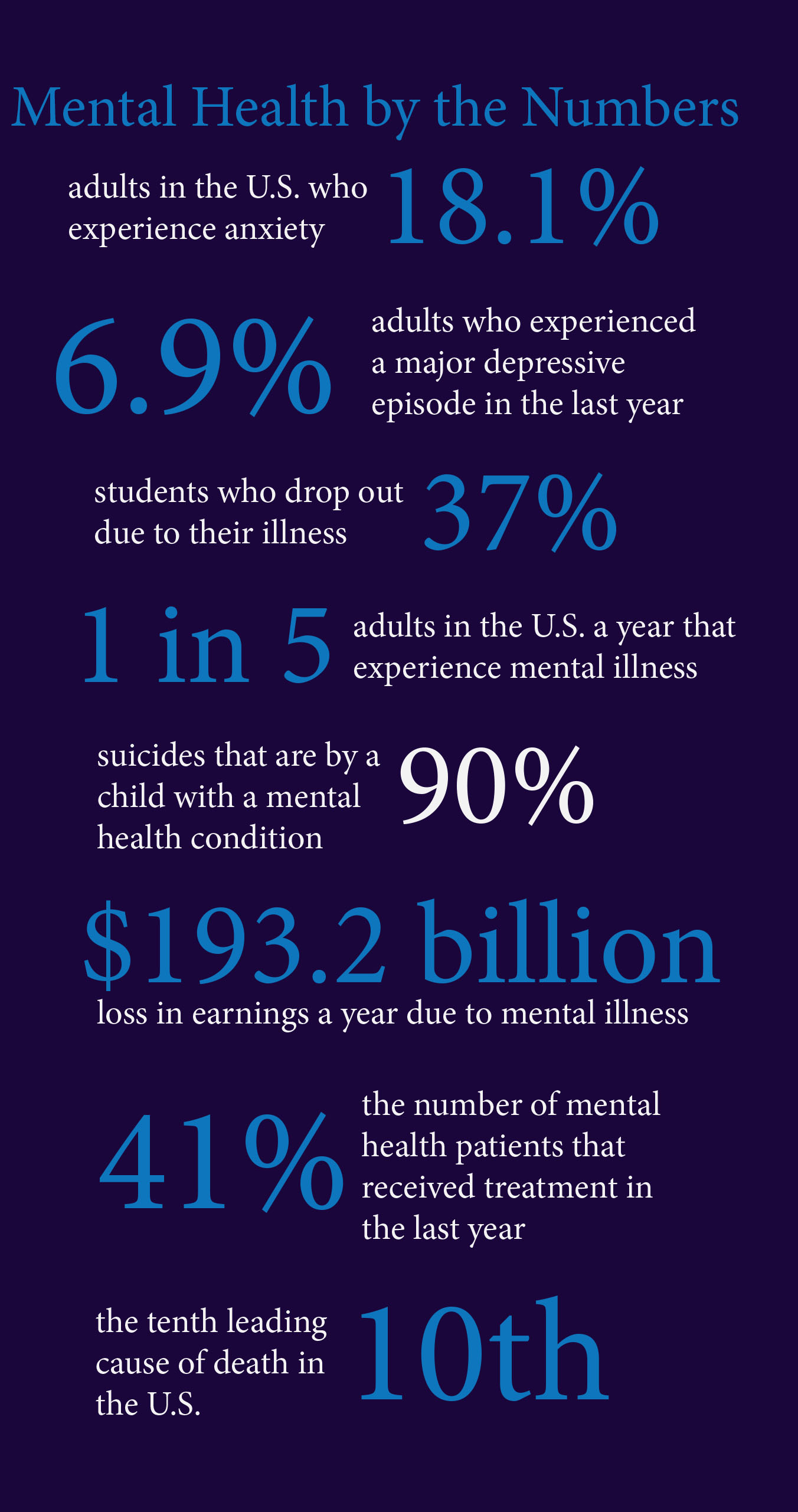
Breaking the stigma of mental illness – when it’s OK not to be OK
Hunter Merck, Staff Writer
Graphic by Hunter Merck
Heart beating. Heavy breathing. Shaking uncontrollably. Imagine drowning in your thoughts every day of your life and then being told that it�s �all in your head.� Is it okay to not be okay? Ask a medical professional or a church member and every single person will tell you something different.
Mental illnesses affect about 18.5 percent of adults in the U.S. a year, according to the National Alliance on Mental Illness. These illnesses include, but are not limited to, depression, anxiety, obsessive compulsive disorder and bipolar disorder.
There is a stigma surrounding illness of the mind. Everyone reacts to various illnesses in different ways. In the church, people are more likely to dismiss these illnesses as a lack of faith. �I�ve heard multiple things, such as �mental illness is demon possession,�� said Holly Tyrpak, RN. She also recalled a time when people in her church didn�t understand why someone may not have been looking to seek treatment until it was too late to do so.
Even in medical environments, mental health patients aren�t always treated with respect or given the attention they need to heal, said Tyrpak. �I was working one night and a suicide attempt came in and one of my coworkers told us that no one wanted them here anyway,� said Tyrpak .
A study by �The Huffington Post” shows medical professionals, who are highly educated in their field, aren�t giving their patients the attention they need. The researchers in this study compared doctor�s treatment of diabetics to those who had been diagnosed with depression and they often failed to follow up with the patients who had depression.
People often think taking medication for mental health is ineffective and sinful because they seem to have a lack of faith. �The church can minister to people with mental illnesses by simply meeting them where they�re at and not treating them as if they have something wrong with them,� said Kieffer Mendoza, junior psychology majorat North Greenville University.
Matthew Stanford, of Baylor University, said mental illness is just as physical as any other illness and should be treated as such. He said the chemistry in the brains of those effected are imbalanced and therefore requires physical treatment. This means it should not be shameful to take medication for this purpose. �The Church has passively abdicated its role in mental health by not knowing what to do,� said Stanford.
The National Alliance on Mental Illness has family education classes and family support groups. �The church should play a role in these lives in the same way as any other person. Love one another,� said Robert Gaddis, psychology professor at North Greenville University. �We must shepherd one another. [We need to not] reject you because you are struggling, because God doesn�t do that.�
�I had no idea how many people were struggling with some form of mental illness until I started talking[about her illness],� said Tyrpak. �I don�t expect my loved ones to have the answers when I�m struggling. I just want them to listen . It�s important for people to know its okay to not be okay.�
�
�

